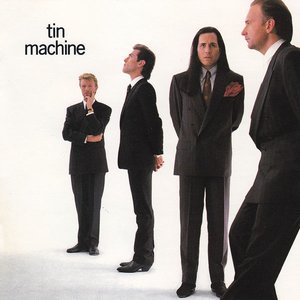Published on May 25, 2008
At some point around 1988, David Bowie must have finally woken up and smelled what he was shoveling.
Having lost all confidence and desperate to stem the flow of unmitigated disasters that were his last three albums, for the first time since the mid ‘60s, Bowie formed a band, called Tin Machine, in which each member (theoretically, at least) had equal input. I guess it was his way of diffusing responsibility, so that if the music turned out to be crap (which it had a great chance of doing given the remarkable tumble in the quality of his output), he wouldn't have to bear the brunt of the criticism for once.
Luckily for
Even more shocking is that there aren't any bad songs on the album at all, and the guitar playing by Reeves Gabrels is consistently imaginative and distinctive, lending a somewhat experimental, art-rock lean to the music. About time – I doubt I could have survived another Tonight.
Now, as refreshing as it is to finally hear
Yup, poor old Dave is the weak link here. His flat performance is the main reason this album is now just a mere curiosity for
The real downfall was Tin Machine’s timing; released during the vapid depths of the tasteless hair metal and dance pop era, it was ahead of its time, anticipating the radically different, harder edged alternative rock and pop that would explode in the early-to-mid ‘90s. Though a laudable attempt by David Bowie (let’s admit it now, it’s a
